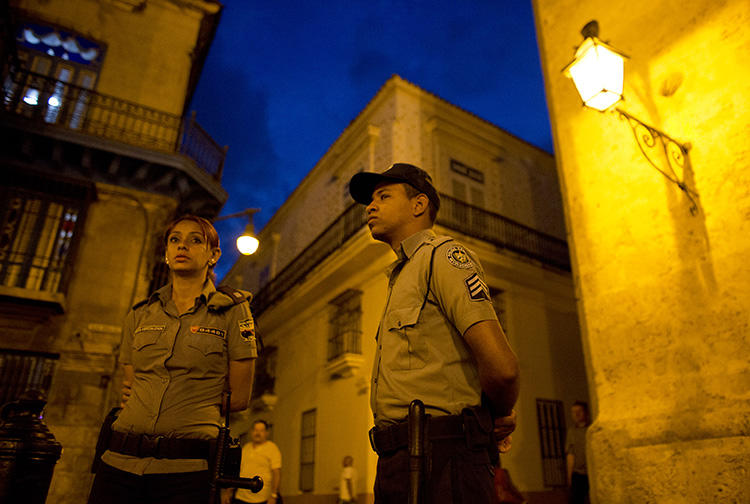On April 9, 2019, at around 7:00 a.m., authorities raided the Havana home of Augusto César San Martín, a reporter for the independent news website CubaNet and a member of the Association for Press Freedom, an organization that promotes press freedom in Cuba, according to CubaNet, news reports, and San Martín, who spoke with CPJ.
After the raid, authorities took San Martín to the Zanja police station, where he was interrogated about his work and fined for allegedly possessing illegal communications equipment and for unspecified economic crimes, he told CPJ. He was released that afternoon, according to CubaNet.
Authorities seized cameras, microphones, a computer, and a router from San Martín’s home, as well as copies of his published articles, certificates of attendance to seminars, and his journalism diplomas, which the agents referred to as “subversive materials,” the journalist said. San Martín told CPJ that he requested to see a warrant permitting the seizures and a list of the material authorities confiscated, but was not provided with either.
At the police station, authorities served San Martín with a fine of 250 pesos ($9.43) from the Ministry of Communications on the grounds that the router confiscated during the raid constituted illegal communications equipment, and a fine of 2,000 pesos ($75) for alleged unauthorized economic activity, he told CPJ. San Martín told CPJ that the authorities did not provide additional information regarding the economic activity fine.
San Martín’s interrogation was focused on his journalism, with agents asking him what he reported on, how he established contacts with other journalists, and whether he was remunerated for his work, he told CPJ. During the interrogation, agents took San Martín to a local hospital to treat his elevated blood pressure caused by the stress of the incident, he said. He was released from custody at 4 p.m., as reported by CubaNet.
During the raid, agents told San Martín that they would come back in the future and that he and his wife were banned from leaving the country, he said.
The raid was carried out by agents from State Security, the Revolutionary National Police, the Ministry of Communications, Immigration Services, and the Interior Ministry, according to local media.
CPJ’s calls to the Cuban Ministry of Communications and Ministry of Interior went unanswered. The Ministry of Justice answered CPJ’s call but could not provide answers to CPJ’s questions regarding San Martín’s case.
San Martín had previously been summoned by authorities and warned against continuing his reporting, and he was blocked from leaving the country to attend a conference in Panama in 2017, according to media reports.
Cuba remains one of the most hostile environments for the press in the world, and ranks among CPJ’s 10 Most Censored Countries.
